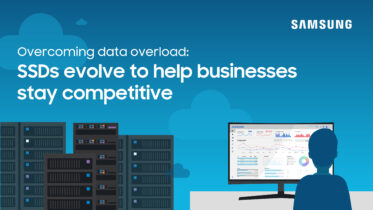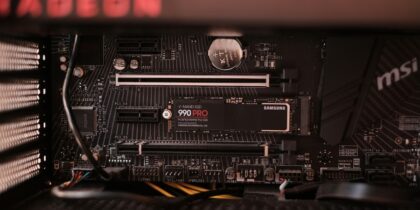For many government workers, hybrid work has become the norm — a great reason for upgrading SSDs. In fact, while one-third of federal employees have returned to the office full-time, 68% of employees work remotely at least occasionally, according to a 2022 survey1 by the Office of Personnel Management.
Similar scenarios are happening at the state level, too. In California, for example, 37.7% of 206,000 state employees are remote-centered, meaning they spend more than half their time telecommuting, according to state data in October 2023.”
In short, hybrid work is here to stay. From a technology standpoint, that means it’s time for IT decision makers to upgrade the devices of all employees working hybrid if they have not already. But instead of buying them all new notebooks, there’s a more cost-effective option — upgrading to solid state drives (SSDs). Here’s why.
Improving speed and capacity
Upgrading to SSDs costs a fraction of what a new laptop with comparable specs costs, often less than $100 per SSD. They are uniquely positioned for hybrid workers because they can either be installed internally into the existing laptop or attached externally to a computing device without the need for technology expertise. But the main reason to upgrade a user to an SSD is its increased speed and processing power compared to traditional hard drive upgrades.
How to solve government data challenges with SSDs
SSDs provide a reliable solution for managing large amounts of data in the public sector securely. Download Now
Compared to traditional hard disk drives (HDDs), SSDs boot up faster — within seconds rather than minutes — so workers don’t have to wait around to get their day started. SSDs also load applications more quickly, and once they’re started up, their higher read speeds mean users won’t experience noticeable lag while working. SSDs make simple processes like conducting internet research or saving files more time-efficient, and they’re particularly well-suited to applications that remote workers use.
Real-world applications
Users operating daily on laptops are often multitasking with several applications open. For example, a software engineer building a block of code while also retrieving data from different repositories will need their machine to handle immediate processing without lag or failure, requiring an SSD that can seamlessly conduct both functions simultaneously.
To account for this, the Samsung peripheral component interconnect express (PCIe®) 4.0 non-volatile memory express (NVMe®) — found in Samsung 990 PRO — features sequential read/write speeds of 7,450/6,900 MB/s, which is 2.1 times faster than PCIe 3.0 SSDs and 12.7 times faster than a SATA SSD. Samsung 990 PRO, available in 1TB, 2TB and 4TB models, also ensures strong data security with AES 256-bit, hardware-based, full-disk self-encryption, which is the strongest encryption algorithm available today.
SSDs are also more reliable and secure. Because there are no moving parts within an SSD, they’re more rugged and less likely to fail — a good selling point for workers who might move their laptops between the kitchen table, the bedroom and the living room throughout the day.
For government storage options, SSDs raise the game, speeding load times and reducing the likelihood of data loss or complete outages. You and your workers can rest assured that their productivity won’t be hindered by the equipment they use to get the job done. In fact, it may rise to new heights.
Learn more about how government databases can boost app performance with Samsung NVMe Pro SSDs. Also, get this free guide to how government solves data challenges with SSDs.
1 Office of Personnel Management. “Federal Employee Viewpoint Survey Results.” 2022.








